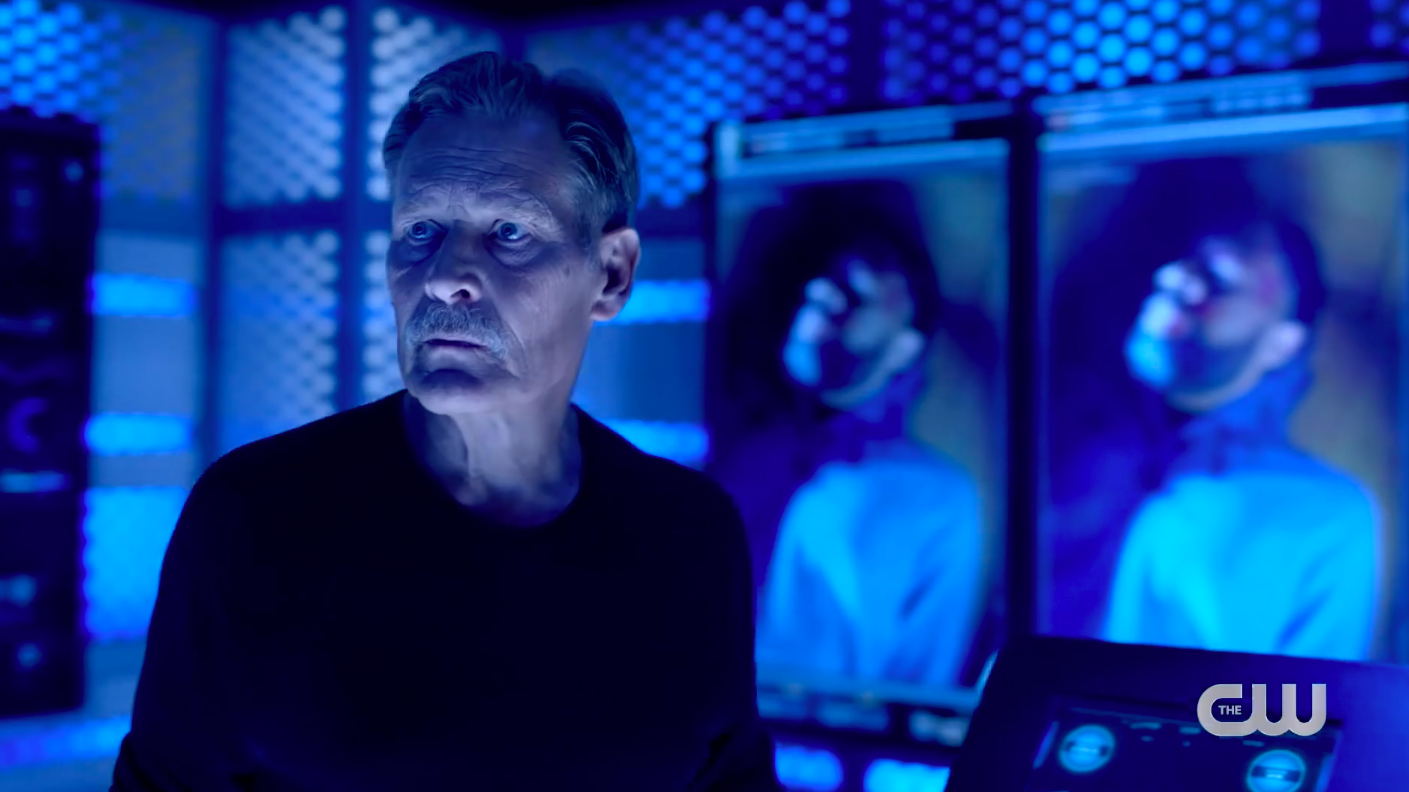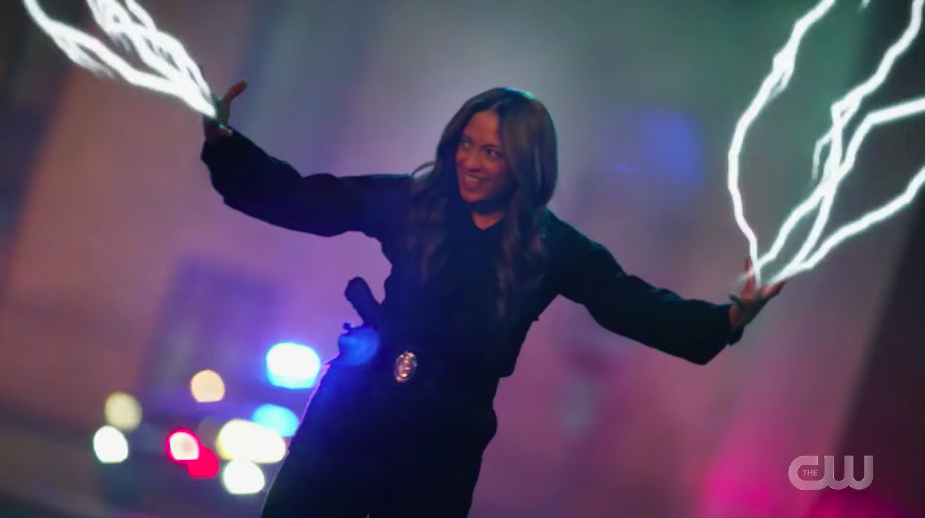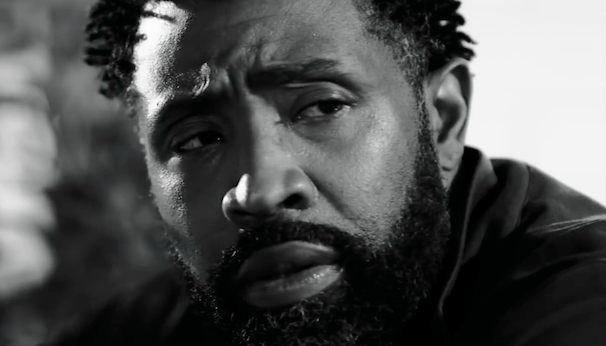Despite the fact that Black Lightning never really got a chance to fully benefit from the kind of interconnected, multiversal-hopping madcaps that the CW’s other comic book shows enjoy, it spent four seasons carving out a distinct space on the network where Black superheroes could stand front and centre as the focus of their own stories. Last night, it had its swan song in “The Book of Resurrection: Chapter Two: Closure.”
From the very beginning, Black Lightning used its heroes and the city of Freeland to tackle the kinds of stories about systemic, anti-Black racism that are every bit as much a part of American history as comic books themselves. In doing so, Salim Akil’s series brought its DC characters to life with a purpose beyond immediate entertainment. Though the series arrived in 2017 already comfortable in that mode of social justice-focused storytelling, it’s been interesting to watch other series like Lovecraft Country and The Falcon and the Winter Soldier follow suit in its wake. Black Lightning’s series finale feels very much like a compromise between the creators’ vision for what might have been in store for the Pierce family, and the reality that the CW’s moved on from Freeland’s heroes. After a generally uneven season in which turf wars between the 100 gang and police once again became the most pressing danger in Freeland, “Closure” wrapped things up with an hour of convenient, and ultimately unsatisfying, sendoffs for characters who really deserved better.

The finale opened with team Black Lightning believing Jefferson Pierce (Cress Williams) to be quite dead. While his family was gutted at the idea, his death is introduced so quickly and dramatically that it’s hard to be very invested in it because — like most comic book stories — it’s clearly not what it seems. Even though the Freeland police’s new weapons nullify metahuman powers, the idea that Tobias Whale (Marvin Jones III) finally succeeded in killing Black Lighting is enough to convince Anissa (Nafessa Williams) and JJ (Jennifer’s new identity, and played by Laura Kariuki, which we’ll get to more of shortly) to spring into action for revenge.
With the police’s meta-blocking emitter still up and running, the sisters, even with the help of Grace Choi (Chantal Thuy) don’t stand a chance against the cops’ weapons, but Gambi (James Remar) reasons he might be able to shut it all down if they move quickly and smartly. This being Black Lightning’s series finale, it would have made sense for the show to try and focus a bit more on a specific set of characters rather than trying to spread itself thinly across an array of so-so subplots, but in “Closure,” everybody eats, albeit to varying degrees of narrative success and effectiveness as big sendoffs.
One of the stranger things to come out of this past season was actress China Ann McClain’s sudden exit from the series, and Jennifer being transformed into “JJ” after exploding in the Earth’s ionosphere and subsequently regaining a new physical form. It never felt like Black Lightning had the time or space to give the Jennifer/JJ arc the attention it genuinely needed to feel like an interesting, organic development for her character, but the finale attempts to wrap things up by throwing yet another wrench in the mix.
Though the show had already gone to great lengths to establish that the two were the same person, the finale revealed that when Jefferson first brought the dispersed energy he believed to be his daughter back down to Earth’s surface, what he was actually carrying was another entity made of pure energy. After JJ makes a trip back up to recharge her powers, she arrives on Earth and has a sudden fit as, up in the ionosphere, the real Jennifer wills herself back into a physical form and makes a beeline for her imposter.
Lovely as it is to see McClain back in Black Lightning, everything about JJ and Jennifer’s confrontation feels like a rushed afterthought that wasn’t the original plan, but was what worked for the sake of the finale. As JJ explains how, in her original form, she envied physical beings who were capable of feeling, “Closure” weakly suggests that the creature may have the upper hand over her human counterpart.

Elsewhere in the city, taking a series of energy blasts directly to the chest nearly kills Anissa, and elsewhere still, Jefferson struggles to break free from the coffin Tobias buried him alive in. The story shifts into schmaltz gear as all of the Pierces reflect on how far they’ve come as they contemplate their respective deaths; all Jefferson ever truly wanted was to do right by his city and his family, and in truth, that’s exactly what he did, false death notwithstanding. Whether it’s because of the emotional intensity of it all or because hearing the dead recently became a thing for the hero isn’t clear, but when his father’s voice begins speaking in his head, Jefferson realises he can draw energy from the irradiated promethium stores in the Earth around him.
“Closure” briefly feels as if it’s hit its cheesy peak as Jefferson explodes out of his grave and Jennifer somehow just decides to reabsorb her energy doppelganger no fuss, no muss. But the series really outdoes itself just moments later as Police Chief Lopez (Melissa De Sousa), a human juiced up with synthetic metahuman abilities, goes mad with power by sucking up electricity from Freeland’s generators. Jennifer and Lopez’s final battle is supposed to be a big deal, but from a visual perspective it lands somewhere between the memes of Kamala Harris as a cop and gifs of Emperor Palpatine shooting lightning from his fingertips.
Because there’s so much going on in “Closure,” though, the battle doesn’t really get a chance to be much more than a so-so lightshow before the episode moves on. Similarly, the “resurrected” Black Lightning and Tobias’ final showdown goes through all the motions you’d expect from a significant series moment, but it ends up feeling more than anticlimactic as Tobias is thrown from a window and impaled on a spike.
As much of a racist threat to society as Tobias was from Black Lightning’s very first episode, his death here feels like something Jefferson probably should have considered long before this point given just how bad things got in Freeland up to the finale.
You can see from the way that Khalil/Painkiller (Jordan Calloway) were also brought back in for the closer how there were likely hopes for the Painkiller spinoff series to potentially revisit his and Jennifer’s relationship, especially with JJ out of the picture. But the CW deciding not to move forward with Painkiller means that “Closure” and its erasure of Khalil’s memories of the Pierce family are the end of his story in the larger Arrowverse.
By the closing moments of the series finale, it’s hard not to feel like you’ve just sat through a relatively middling episode of Black Lightning, but the unfortunate thing is that this is how the Pierces’ story closes. At least for now.
